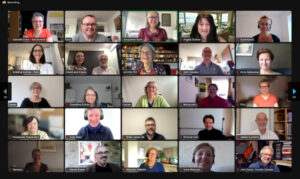I’m a great fan of Nassim Nicholas Taleb, author of The Black Swan: The Impact of the Highly Improbable. For Taleb, a “Black Swan is an event, not an exception or a bird with feathers, but an event that has big impact when it happens.“
Three years ago I summerised his book in an article Black Swan Logic: Thinking Outside the Norm.
Recently Taleb gave a talk at the House of Commons where he addressed the topic of Robustness and Fragility.
Although Taleb is mostly interested in social and economic matters, I am going to examine how ideas from that talk might apply to the human psyche, and how we might use them to assist our meanderings along the path of personal development.
“The problem with technology is that when it works, it is better; when it does not work, it is far worse.” (Taleb)
I could also apply Taleb’s aphorism directly to the various psychological ‘technologies of change’. Why? Because we come to rely on the technology. Then, when things do not go according to plan we are either lost and don’t know what to do, or we make things worse by doing more of what isn’t working. The old saying, ‘The operation was a success but the patient died’ is no joke.
Of course it is not the technology that is the problem – it is our reliance on it. Taleb is at pains to point out that we assign almost magical powers to technology. Because it works most of the time we do not expect it to fail. Ironically the more safety we build into the system the more we rely on it, and this in turn increases the system’s fragility to those rare, unexpected events that have big consequences – Black Swans. Then, when things go wrong, they go wrong big time.
As I said in yesterday’s blog (See Contraindications for Symbolic Modelling), it’s important for facilitators to know the signs for when things are heading in a beneficial direction, and the signs for when they are not. And to remember that even when things look hunky dory they can switch in a second. My advice to Symbolic Modelling trainees when they hit those inevitable tough spots is: go back to basics; keep it simple; don’t try to make anything happen; acknowledge and utilise what is already happening. The strange thing is, this is the opposite of what most people do. They feel scared or stuck, bail out and bring in some other technique – in short they try to intervene from their map of the world. Often the client will sense the discomfort of the facilitator and interpret it as something to do with them. Now they have that to deal with that on top of whatever else was going on for them.
” You can only say something is efficient, after it proves to be so, not before.” (Taleb)
This is because everything that happens to a human is a one-time trial, a one-off experiment. We can never recreate the exact initial conditions because everything that happens to a human changes them. We are progressive and cumulative beings. Therefore we can never know what would have happened if we had done something different. It’s like Improvisational Theater – “every night is a first night” (What-did-Improv-ever-do-for-us, Keith Johnstone).
In simplest terms we are condemned to perpetually ‘suck it and see’ (as the British put it).
Continued in Robustness and Fragility Part 2.








